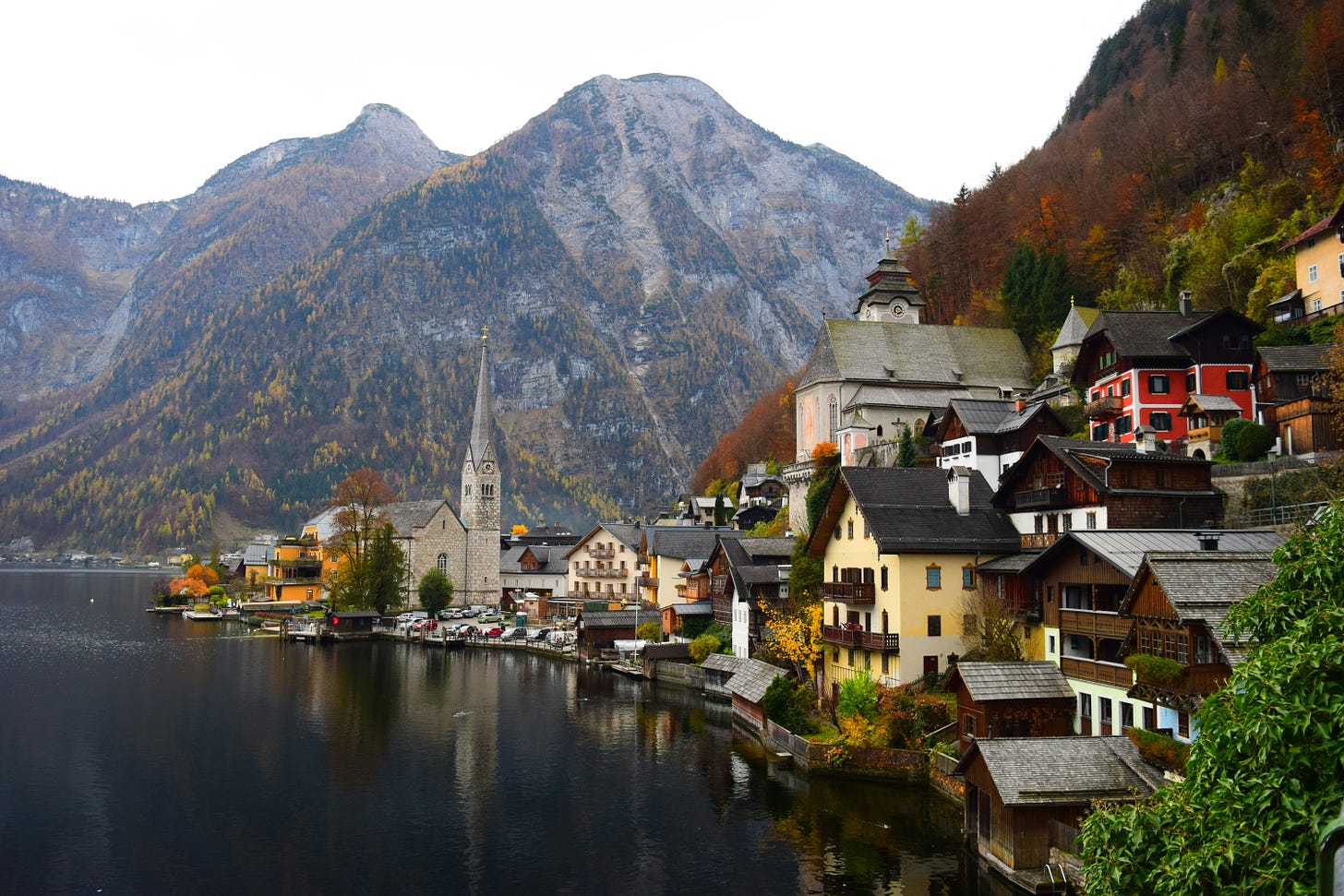Anchored expectations
And the New Right hates Europe so much it wants to be it
Photo by Joss Woodhead on Unsplash
Hello,
Welcome to Known Unknowns, a newsletter that likes Europe (the museums and food are great!) but doesn’t think America should try to recreate their economy.
You are so obsessed with Europe, maybe you want to be Europe
The New Right may be the future of conservatism, but sometimes it seems like they’re just left-wingers trying to remake the American economy into… well, Europe. People like JD Vance and Josh Hawley and their ilk like to complain about Europe and even bully them from time to time (sometimes for valid reasons), but if you look at the policies of the New Right—and sometimes the President—it seems like they really want us to be Europe. Maybe that’s why JD is so obsessed with talking about them, and why at times it seems we’ve left policymaking to a left-wing college student one month into their junior year abroad.
Think about it. They want us to consume less and buy more high-quality domestic goods. They want a bigger welfare state that covers the middle class. They want antitrust to take down big tech. And they want a smaller, slower-growing economy to benefit a small group of people who represent the past. All so European! Even MAHA feels a little Euro with their obsession with artificial food. What’s next? Tethered bottle caps?
I hope they’re prepared to accept lower growth in exchange.
But hopefully we’ll get better pastries.
It is all about anchoring
If you told me four months ago I’d be OK with a 10% universal tariff, I’d have thought you were insane. It’s still too high, but after the Liberation Day rates, it seems pretty reasonable. I argued in January that it’s not about taking Trump seriously or literally. He just throws out some crazy number and goes from there. And I guess I fell for it too, because now 10% tariffs seem OK—or at least not terrible. I even argued in Bloomberg it isn’t good, but 10% tariffs probably won’t cause a recession either.
It’s just another tax—a distortionary tax—and that’s bad. I prefer more neutral taxes. But we have lots of bad, distortionary taxes, and they also make the economy less good, but don’t destroy it either. And that’s where we are. I guess I’ll take it.
And maybe we’ll end up in a better place in the end. While it is true tariffs have fallen over time in most countries, they’re at negligible levels except for countries like Iran and now America. But Trump is right that many countries do have so-called non-tariff barriers that also restrict trade (looking at you, EU!). They can be very large—equivalent to more than a 100% tariff.
Non-tariff barriers include all sorts of regulations: like not buying our food because of GMOs, arcane rules that require local know-how, or even a preference for small cars. Of course, the country with all the regulations is the one that suffers most from them, not their trading partners. Non-tariff barriers are a big reason why the European economy is such a mess. But if Donald Trump wants to expedite the EU’s regulatory reform—good for him. It may be what needs to happen for the euro to become a major contender as a global currency.
So between a 10% universal tariff on foreign goods and pushing our trading partners to drop their costly regulations, it seems again the plan is to converge the European and American economies.
MAGA accounts
So the tax bill, that so far is not going anywhere, is not exactly the pro-growth bonanza we were promised. It’s not anti-growth—it extends tax cuts and restores full bonus depreciation. But that’s pretty much it in terms of growth-oriented tax policy.
I’m most intrigued by the MAGA accounts. It’s similar to the Cory Booker baby bonds idea, where every baby gets an account seeded with $1,000 from the government to launch them into adulthood one day. In some ways, the new plan is an improvement because the accounts will be invested in the stock market (instead of risk-free bonds), and I’m all for expanding stock market participation.
Still, it’s weird. Is the purpose of government really to write us checks from day one? Also, the justification for these accounts is that it’s hard to launch because the costs of education and housing are so high. Therefore, the argument goes, young people need help. But the high cost of housing and education is the result of the government subsidizing demand and restricting supply in the first place. We’re just adding more fuel to the demand that bids up prices.
If we want to help young people—and not burden the taxpayer further—why not just deregulate?
Until next time, Pension Geeks!
Allison



Not sure where you are getting your information. That’s not an even remotely accurate description of any variant of the New Right.
“why not just deregulate?”
Because there’s very little economic liberalism at work. It’s all about state control, in both parties.